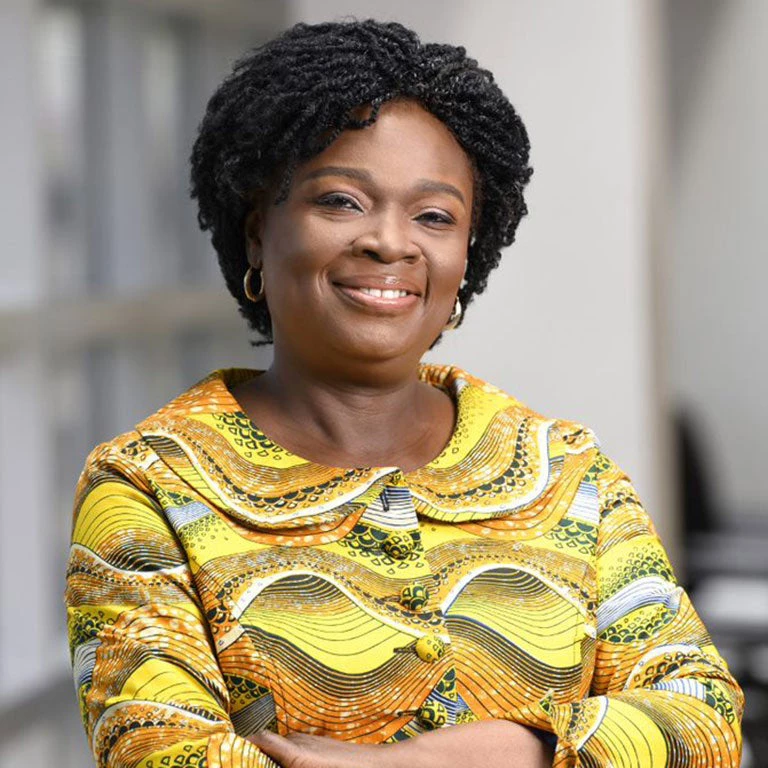 Students at university computer class in South Africa. Photo: Goodboy Picture Company
Students at university computer class in South Africa. Photo: Goodboy Picture Company
Digitalization is one of the most transformative opportunities of our time and a potent tool to eradicate poverty on a livable planet. Right before our eyes, digital technologies are constantly evolving, changing societies and our everyday lives. The rapid speed of new technologies, such as Artificial Intelligence (AI) and Machine Learning (ML) is also changing digital capabilities for many countries, although not all.
While digitalization presents immense opportunities for job creation, poverty reduction, and improved service delivery, the Eastern and Southern Africa region has the slowest pace of digitalization globally, with only 64% of the population covered by high-speed internet, and just 24% of the population using the internet (as of 2023).
We need to change this course. Without access to the internet and digital literacy, hundreds of millions of Africans, including young Africans, will continue to be left behind. This is significant, especially as the continent will have the youngest and fastest-growing working-age population in the world by 2050.
It is also estimated that there will be 230 million digital jobs in Sub-Saharan Africa by 2030. These jobs come largely from rapidly growing digitally enabled services, which will require intermediate or advanced digital skills, as well as basic financial and digital literacy for all.
Today, the region is facing a significant digital skills gap and persistent gender disparities. There is also low technology adoption among firms, limiting productivity and hampering job creation, especially in areas that require higher level skills. The skill deficit is also impacting the public sector, which is struggling to keep up with rapid technological advances.
On this World Youth Skills Day, there is an urgent need for us to work together to accelerate digital adoption in the region and ensure that everyone, including the youth, benefits.
At the World Bank Group, digital development is a top priority. In Eastern and Southern Africa, we want to help countries ensure that citizens including youth and women, businesses, and government agencies are all digitally enabled by 2030. To achieve this, we are supporting investments in digital infrastructure, skill building, e-services, and regulatory regimes.
East and Southern Africa faces critical challenges for digital development such as lack of adequate digital infrastructure and accessible and affordable connectivity, and limited digital skills but has been making progress towards digital transformation in the last decade.
In Malawi, for example, the Digital Foundations Project, financed by the International Development Association (IDA), has provided connectivity to 530 public institutions, including hospitals and post offices; supported internet for educational sites benefiting 84,000 students; provided free Wi-Fi in 120 public areas; put in place a national data center; and funded TechHubs that have already trained 19,000 youth, as of 2024.
In Tanzania, the East Africa Skills for Transformation and Regional Integration Project, also financed through IDA, is supporting the establishment of a Regional Flagship in ICT Centre (RAFIC) at the Dar es Salaam Institute of Technology. The Centre will support the training of a qualified and skilled workforce in ICT to meet labor market needs in East Africa. RAFIC will have labs for cyber security, multi-media, digital fabrication, electronics and instrumentation, communications, blockchain, and software development.
Another exciting, and recently approved, regional program is the Inclusive Digitalization in Eastern and Southern Africa (IDEA) Program, which aims to increase access and inclusive use of the internet and digitally enabled services, is designed to benefit more than 180 million Africans by 2032. This is the first major program of its kind in the region and presents a significant opportunity to accelerate the achievement of universal digital access and unleash opportunities for the advancement of the region’s digital economies.
IDEA includes a component on developing inclusive digital skills and capabilities of citizens, businesses, and the public sector. Digital inclusion is key. Everyone—including youth, women, marginalized groups, and people with disabilities—should benefit and have equal, fair, and safe access to information and the necessary digital literacies. Unfortunately, this is not the case. Today, for example, there are multiple issues hindering women’s access to, and use of, digital tools including affordability, literacy, risk of online abuse, and limited content targeted to women. The IDEA Program will address these issues, along with our new Regional Gender Action Plan for Eastern and Southern Africa.
These are a just few examples of many exciting and promising ongoing initiatives in the region that will help open doors to new opportunities for Africa’s youth and unleash their potential. With a clear focus on digital development, supported through public and private sector partnerships, we can boost African economies, increase incomes, and create jobs. The continent is brimming with youthful energy and talent. I encourage you to tune into the conversations on X and Facebook that we are hosting this week to hear from inspiring young African digital entrepreneurs from Angola, the Democratic Republic of Congo and Malawi, who are already contributing to digital transformation of the region.


Join the Conversation